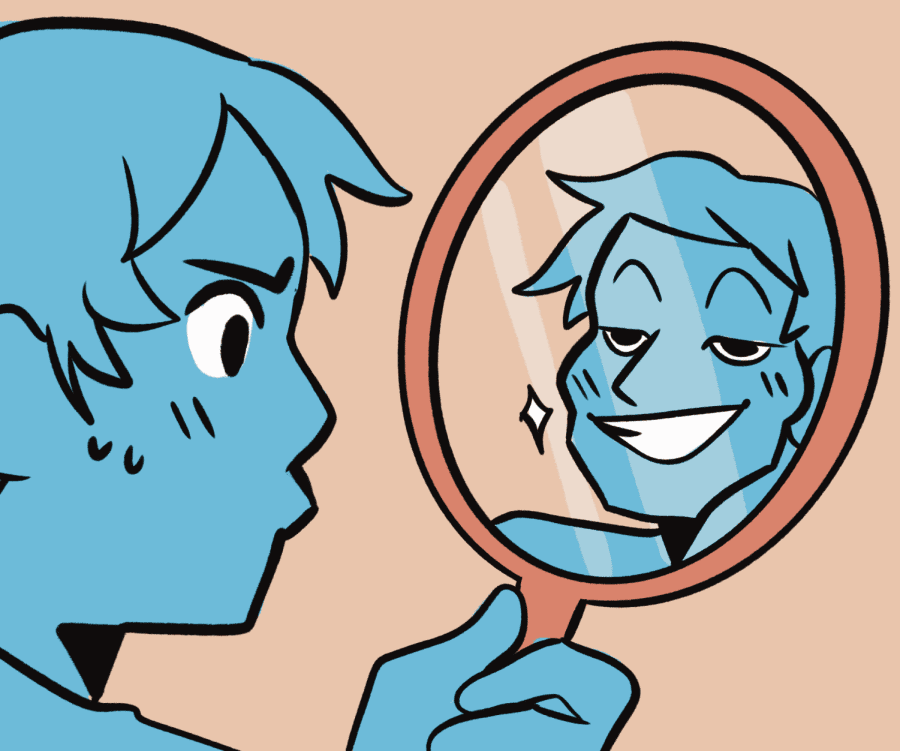Do attractive students really have it easier?
November 30, 2022
It is no secret that human interaction is important to people. As students navigate and branch out socially on campus, controversial topics arise constantly regarding physical looks.
Many students have pondered whether physical attractiveness affects social interactions — whether the number of friends acquired ties in with a student’s place on the attractiveness scale.
Students of different gender identities expressed opinions that helped identify patterns of physical attractiveness and social life.
Isabella Chon, freshman in LAS, claims that she feels well socially.
“Though I’m typically like the wallflower in social settings, I’ve tried to get involved more now that I’m in college, where I am away from childhood friends and family,” Chon said.
Get The Daily Illini in your inbox!
Chon said she has been going to different RSO activities and feels satisfied with the new social opportunities that campus life provides. Chon said she connects with people sharing interests, upper-level students who give her good advice for the future and classmates with the same struggles.
“As I get closer with my classmates, I slowly get to meet their friends, and then we all start hanging out as a combined friend group of sorts,” Chon said.
Similarly to Chon, Dana Arreguin, freshman in Education, expressed satisfaction with her social life on campus.
“I fit right in with the social aspect of the University,” Arreguin said. “It’s fun to meet new people, try new things and make memories.”
Thehan Nissanka, sophomore in LAS, said they feel slightly less satisfied and attributed the feeling to their personality.
“I have not been assimilating to the social aspect of the school very well, but that is mostly on me, as I haven’t been as outgoing or engaging with other people in ways that I could,” Nissanka said.
Despite the dissatisfaction with their social life, Nissanka does not believe that attractiveness affects students’ social lives. They said it’s not hard to meet new people and make new friends, given plenty of RSOs and campus events.
“Over 50,000 people go to the University, and as long as you can converse with others and connect through your own interests, you can make friends,” Nissanka said.
Chon echoed Nissanka’s views, saying that she believes there are many other factors besides physical attractiveness that can affect the state of one’s social life.
“For example, if a student who’s in an academically challenging and time-consuming program or doing something like undergrad research, regardless of how physically attractive that student might be, their responsibilities have already limited that student’s social life,” Chon said.
Adriana Ayala, freshman in LAS, said they believe that the diversity on campus helps with unbiased social interactions.
“You can be in class or an event, and you simply gravitate towards someone you feel comfortable with, if that makes sense,” Ayala said. “If someone has a kind and warm energy to them, you may be inclined to approach them if that’s what you gravitate towards.”
Joeal Ammar, freshman in LAS, has a different opinion regarding attractiveness and social life. Ammar said he believes attractiveness is subjective and will make people’s life different.
“I do believe physical attractiveness affects a student’s social life,” Ammar said. “I say this because people tend to approach or talk to others if they find them interesting which ultimately can go back to how someone looks.”
Although opinions on attractiveness affecting platonic social life differ, many students share the same viewpoints regarding how attractiveness affects romantic relationships.
“Obviously, a person is going to want to date someone else, even if they don’t value it highly, so that is the only instance where I think it can affect someone’s social life,” Nissanka said. “But for making friends, it definitely does not matter.”
Chon also agreed that attractiveness plays a role in the way people perceive each other when dating on campus.
“As shallow as that may sound, it is true, if you want to look at it in an anthropological and psychological sense,” Chon said.
Ammar said he believes that attractiveness does not make it impossible to have a thriving social life on campus where diversity is prioritized.
“There’s enough people out there to bond with,” Ammar said. “I will say though, sometimes to go out of your comfort zone and put yourself out there as much as you can.”
Nissanka also advised introverted students to push harder to engage with people by asking others to hang out, talking to people in your classes and going to RSOs and events. While pointing out the benefits of connections, Nissanka said it is crucial for students to prioritize time for themselves and remember that their self-esteem comes from within, not outwards.
“Don’t forget to value the time you get alone with yourself, as your connection with yourself is as important if not more important than with your friends,” Nissanka said.







